Arthonia trifurcata (Müll. Arg.) Cl. Roux
Cat. Lich. France: 1314, 2014. Basionym: Opegrapha trifurcata Hepp ex Müll. Arg. - Mém. Soc. Phys. Hist. nat. Genève 16, 2: 407, 1862.
Synonyms: Opegrapha calcarea auct. p.p.; Opegrapha decandollei (Stizenb.) Arnold; Opegrapha koerberiana Müll. Arg.; Opegrapha saxicola var. decandollei Stizenb.
Distribution: N - VG, Ven (TSB 7983), Lig (GDOR 371). C - Tosc (TSB 21202), Laz (TSB 8395), Sar (TSB 11841). S - Cal (TSB 10553), Si (TSB 17239).
Description: Thallus endosubstratic or thinly episubstratic, continuous to cracked, usually not well-delimited, whitish to greenish white. Apothecia lirelliform, black, epruinose, straight or curved, simple or branched, 0.2-1.5 x 0.1-0.3 mm, isolated or aggregated into irregular clusters, protruding from thallus, with a slit-like disc and a black margin. Proper exciple black, carbonized, closed below the hymenium, K-, the part below the hymenium thin, at most as tall as the hymenium and subhymenium together; epithecium brownish, K-; hymenium colourless, 50-100 µm high, I+ reddish throughout, K/I+ blue; paraphysoids much branched and anastomosing, not capitate; hypothecium black. Asci 8-spored, broadly clavate to subglobose, semifissitunicate, Arthonia-type. Ascospores 3-septate with rounded ends, hyaline, (10-)13-20(-24) x 4-6(-7) μm, usually slightly restricted in the center into two unequally wide parts, the perispore very thin or absent. Pycnidia black, more or less immersed. Conidia straight, 4-10 x 0.5-1.5 µm. Photobiont trentepohlioid. Spot tests: thallus K-, C-, KC-, P-, UV-. Chemistry: without lichen substances.Note: this species has been often confused with A. calcarea, so that its distribution in Italy is still poorly known. It grows on calcareous rocks in rather sheltered situations, below the montane belt.
Growth form: Crustose
Substrata: rocks
Photobiont: Trentepohlia
Reproductive strategy: mainly sexual
Commonnes-rarity: (info)
Alpine belt: absent
Subalpine belt: absent
Oromediterranean belt: absent
Montane belt: absent
Submediterranean belt: rare
Padanian area: absent
Humid submediterranean belt: rare
Humid mediterranean belt: rare
Dry mediterranean belt: rare

Predictive model
Herbarium samples
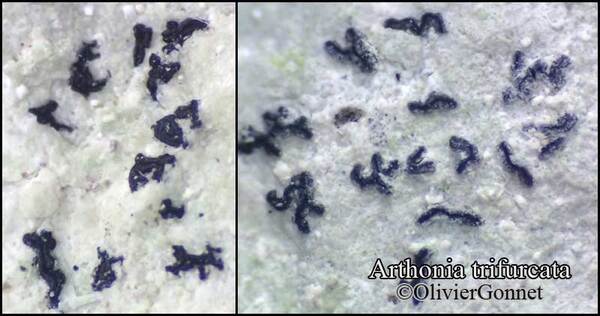
Courtesy Danièle et Olivier Gonnet - Source: https://www.afl-lichenologie.fr/Photos_AFL/Photos_AFL_A/Textes_A2/Arthonia_trifurcata.htm
France, Session AFL Bourgogne - Combe Lavaux - Côte-d'Or
10/7/2015
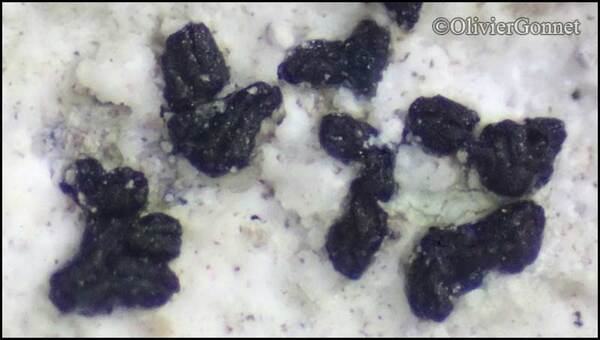
Courtesy Danièle et Olivier Gonnet - Source: https://www.afl-lichenologie.fr/Photos_AFL/Photos_AFL_A/Textes_A2/Arthonia_trifurcata.htm
France, Session AFL Bourgogne - Combe Lavaux - Côte-d'Or
10/7/2015
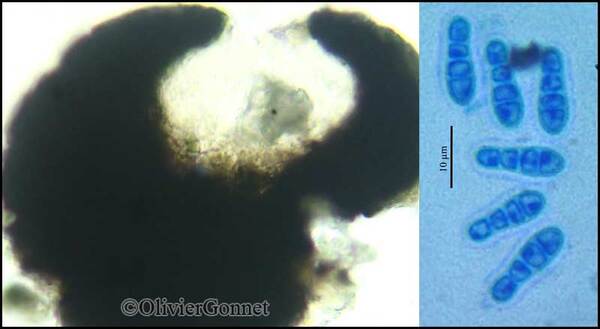
Courtesy Danièle et Olivier Gonnet - Source: https://www.afl-lichenologie.fr/Photos_AFL/Photos_AFL_A/Textes_A2/Arthonia_trifurcata.htm
France, Session AFL Bourgogne - Combe Lavaux - Côte-d'Or
10/7/2015
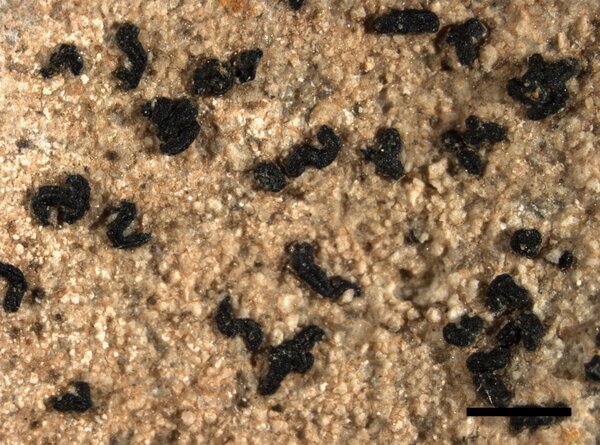

Elena Pittao; Owner: Department of Life Sciences, University of Trieste
Herbarium: TSB (13485)
17/02/2017
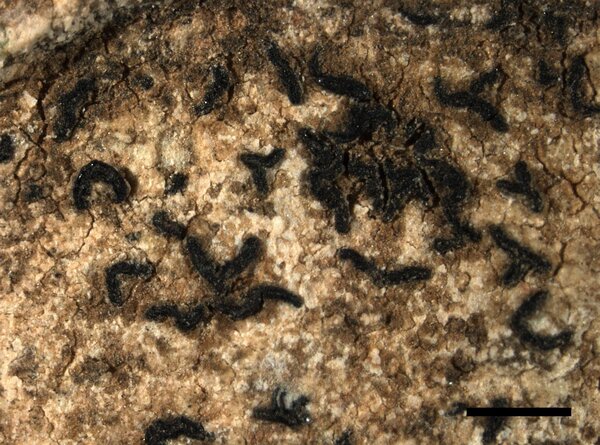

Elena Pittao; Owner: Department of Life Sciences, University of Trieste
Herbarium: TSB (13485)
17/02/2017
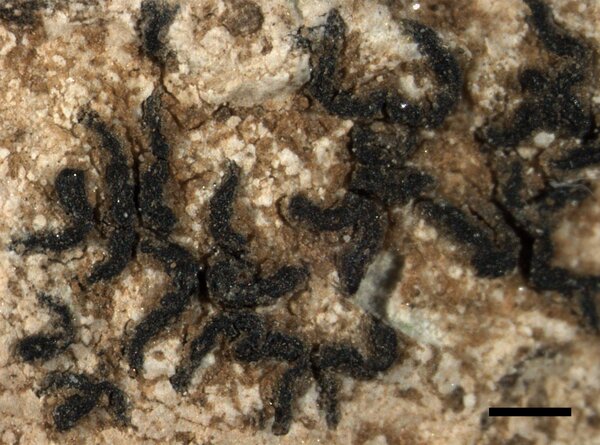

Elena Pittao; Owner: Department of Life Sciences, University of Trieste
Herbarium: TSB (13485)
17/02/2017
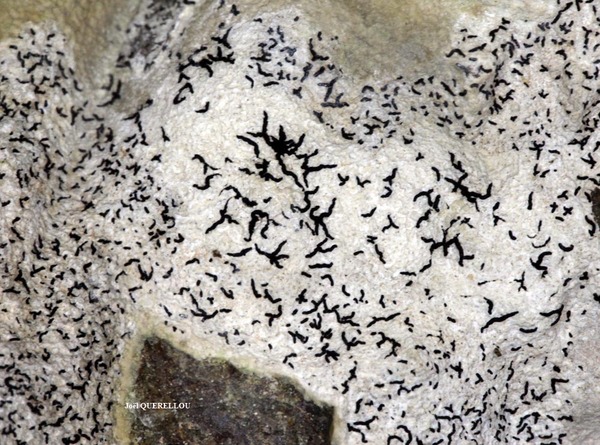
Joël Querellou - Source: http://www.lichensmaritimes.org/index.php?task=fiche&lichen=637&lang=en
France, Aber Four à chaux
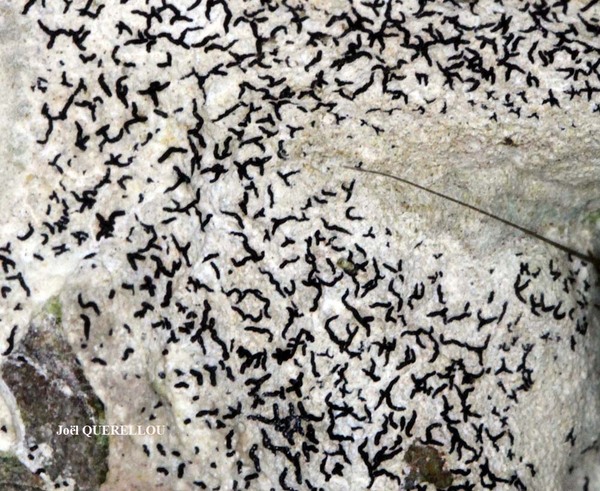
Joël Querellou - Source: http://www.lichensmaritimes.org/index.php?task=fiche&lichen=637&lang=en
France, Aber Four à chaux
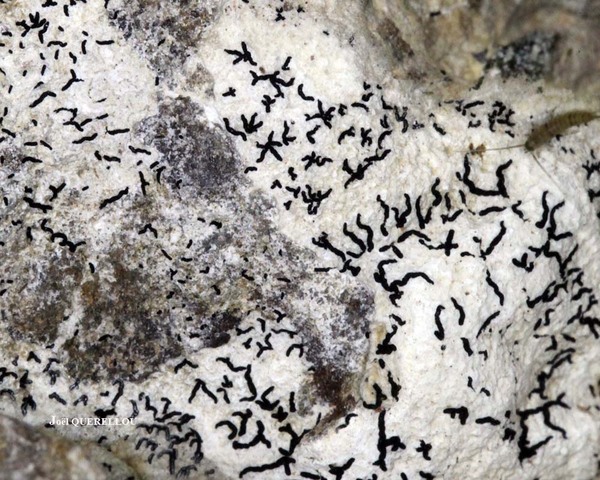
Joël Querellou - Source: http://www.lichensmaritimes.org/index.php?task=fiche&lichen=637&lang=en
France, Aber Four à chaux
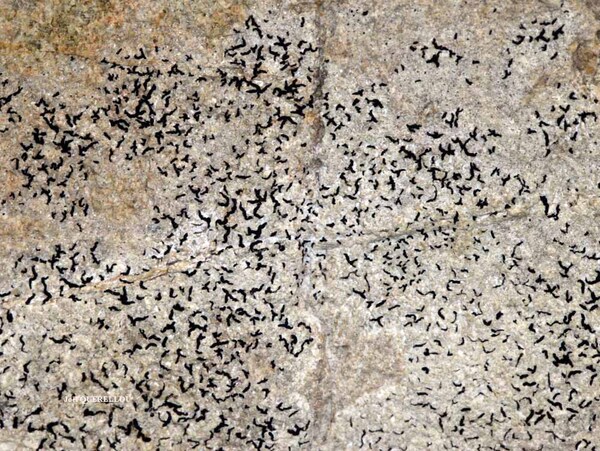
Joël Querellou - Source: http://www.lichensmaritimes.org/index.php?task=fiche&lichen=637&lang=en
France, Aber Four à chaux
Growth form: Crustose
Substrata: rocks
Photobiont: Trentepohlia
Reproductive strategy: mainly sexual
Commonnes-rarity: (info)
Alpine belt: absent
Subalpine belt: absent
Oromediterranean belt: absent
Montane belt: absent
Submediterranean belt: rare
Padanian area: absent
Humid submediterranean belt: rare
Humid mediterranean belt: rare
Dry mediterranean belt: rare

Predictive model
| Herbarium samples |

Courtesy Danièle et Olivier Gonnet - Source: https://www.afl-lichenologie.fr/Photos_AFL/Photos_AFL_A/Textes_A2/Arthonia_trifurcata.htm
France, Session AFL Bourgogne - Combe Lavaux - Côte-d'Or
10/7/2015

Courtesy Danièle et Olivier Gonnet - Source: https://www.afl-lichenologie.fr/Photos_AFL/Photos_AFL_A/Textes_A2/Arthonia_trifurcata.htm
France, Session AFL Bourgogne - Combe Lavaux - Côte-d'Or
10/7/2015

Courtesy Danièle et Olivier Gonnet - Source: https://www.afl-lichenologie.fr/Photos_AFL/Photos_AFL_A/Textes_A2/Arthonia_trifurcata.htm
France, Session AFL Bourgogne - Combe Lavaux - Côte-d'Or
10/7/2015


Elena Pittao; Owner: Department of Life Sciences, University of Trieste
Herbarium: TSB (13485)
17/02/2017


Elena Pittao; Owner: Department of Life Sciences, University of Trieste
Herbarium: TSB (13485)
17/02/2017


Elena Pittao; Owner: Department of Life Sciences, University of Trieste
Herbarium: TSB (13485)
17/02/2017

Joël Querellou - Source: http://www.lichensmaritimes.org/index.php?task=fiche&lichen=637&lang=en
France, Aber Four à chaux

Joël Querellou - Source: http://www.lichensmaritimes.org/index.php?task=fiche&lichen=637&lang=en
France, Aber Four à chaux

Joël Querellou - Source: http://www.lichensmaritimes.org/index.php?task=fiche&lichen=637&lang=en
France, Aber Four à chaux

 INDEX FUNGORUM
INDEX FUNGORUM
 GBIF
GBIF
 DOLICHENS
DOLICHENS



